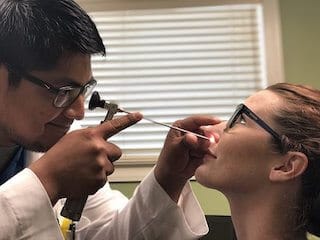An In-Depth Look at Antibiotic Overuse
I recently received a question via Twitter regarding the overuse of antibiotics a recent study by, the World Health Organization (WHO). It was a great question and I’m excited to give my viewpoint!
The World Health Organization (WHO) does make some good points in the article, but unfortunately, the accelerated rate of resistance of bacteria to antibiotics is much more complicated than hand washing and antibiotics being prescribed for viruses and allergies inappropriately. The missing piece of the article is that more people are living longer with chronic diseases that from time to time will require them to be administered life-saving antibiotics. One prime example is patients with COPD.
These patients, when they get infected with a respiratory virus, it will morph into a bacterial infection rapidly and can be life-threatening. The success of modern medicine in itself is creating the problem when you look at the number of cancer survivors living today. Somewhere along the line all of those cancer patients received antibiotics during their treatment in one form or another and, for many, multiple courses depending on how they responded to therapy. I’m not picking on cancer patients mind you I’m just using it as an example.
This does not mean we should abandon hand washing or continue to prescribe antibiotics for the common cold? In the case of patients with recurrent chronic sinusitis, patients require repeat but necessary antibiotic therapy because the underlying cause of the CRS has not been identified and addressed such as allergic fungal sinusitis or reflux. These patients do have legitimate infections that do require antibiotics. As I’ve stressed before, treat the underlying cause to reduce the number of antibiotics used in treating CRS.
It is also my belief that as the human population evolves more and more people will be identified with underlying immuno-deficiencies. Again, this is due to the success of modern medicine.
In the last sixty years infant and child mortality have decreased dramatically and because of this decrease in mortality, there is more genetic diversity than ever before.
It is my belief that because of this genetic diversity there are more patients who do not fit the typical presentation for immuno-deficiencies. These patients then suffer from recurrent bacterial infections potentiating an increase in bacterial resistance. In my practice, we are identifying many patients who fit this category that for years were on antibiotics for recurrent bacterial sinusitis. Once this problem is addressed that patient’s need for antibiotics decreases dramatically.
So besides good hand washing with plain soap and not treating colds with antibiotics, the medical community needs to do a better job of maximizing treatment of patients with underlying chronic diseases and identifying patients with immune deficiencies. This will not arrest the development of antibiotic resistance completely but it will slow it down considerably. Hope this helps. Comments and Questions are always welcome!
SITED MENTIONED ARTICLES
Health News One Article: http://www.healthnewsone.org/the-who-urgently-warns-post-antibiotic-era-is-almost-upon-us
WHO Study: http://apps.who.int/iris/bitstream/10665/112642/1/9789241564748_eng.pdf?ua=1







